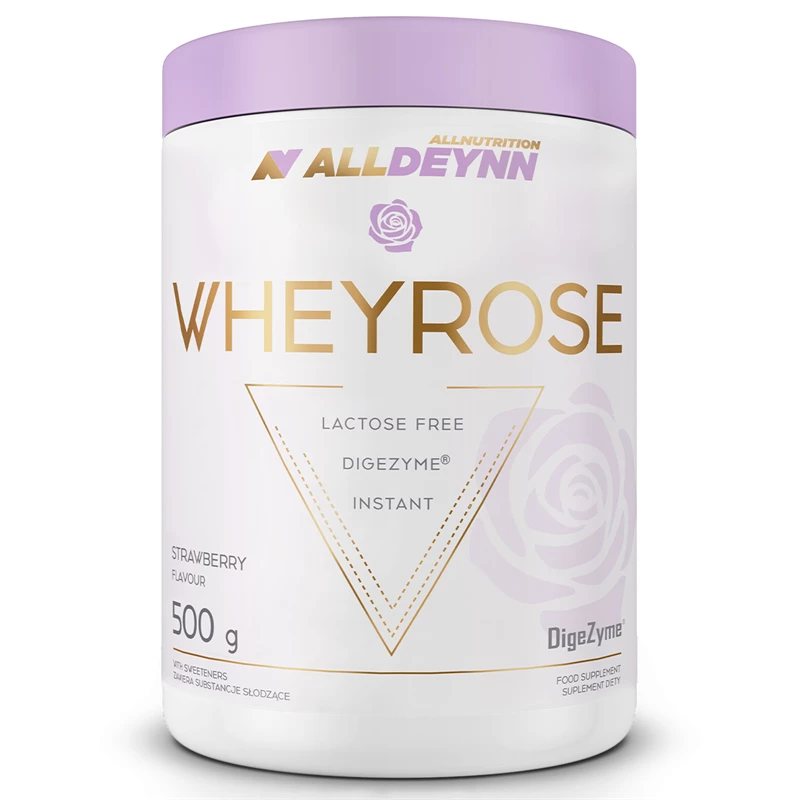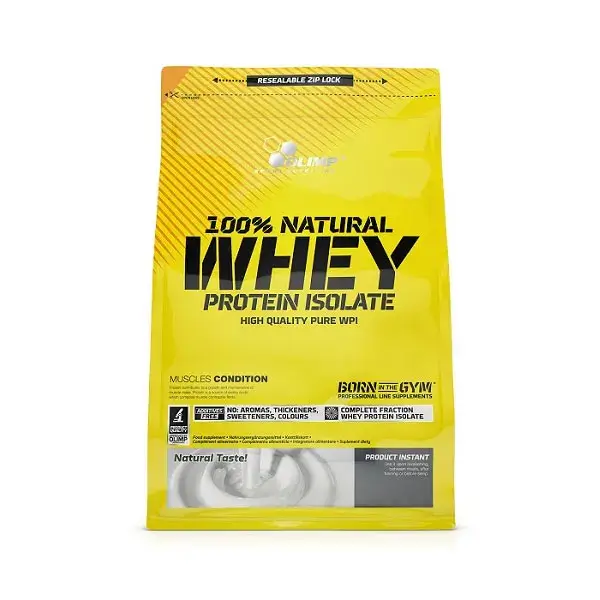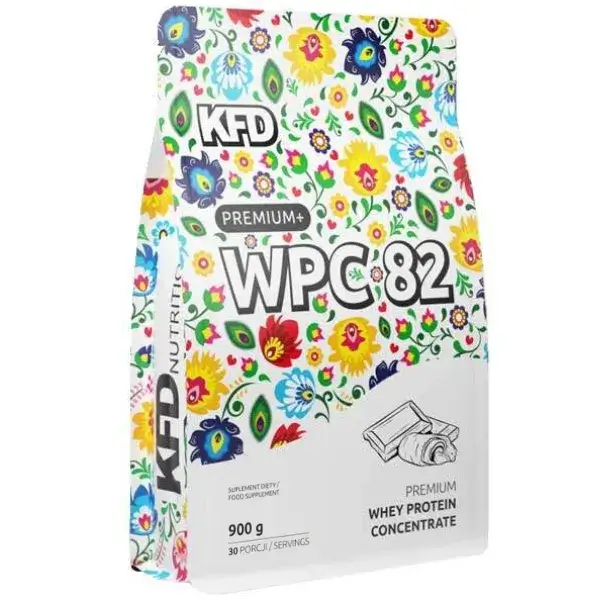Protein supplement for athletes - what it is, properties, effects
All about protein nutrition - what it gives, who it is recommended to, types and recommended products.


Learn more about our editorial process
.

Learn more about our editorial process
.

Learn more about our editorial process
.

Learn more about our editorial process
.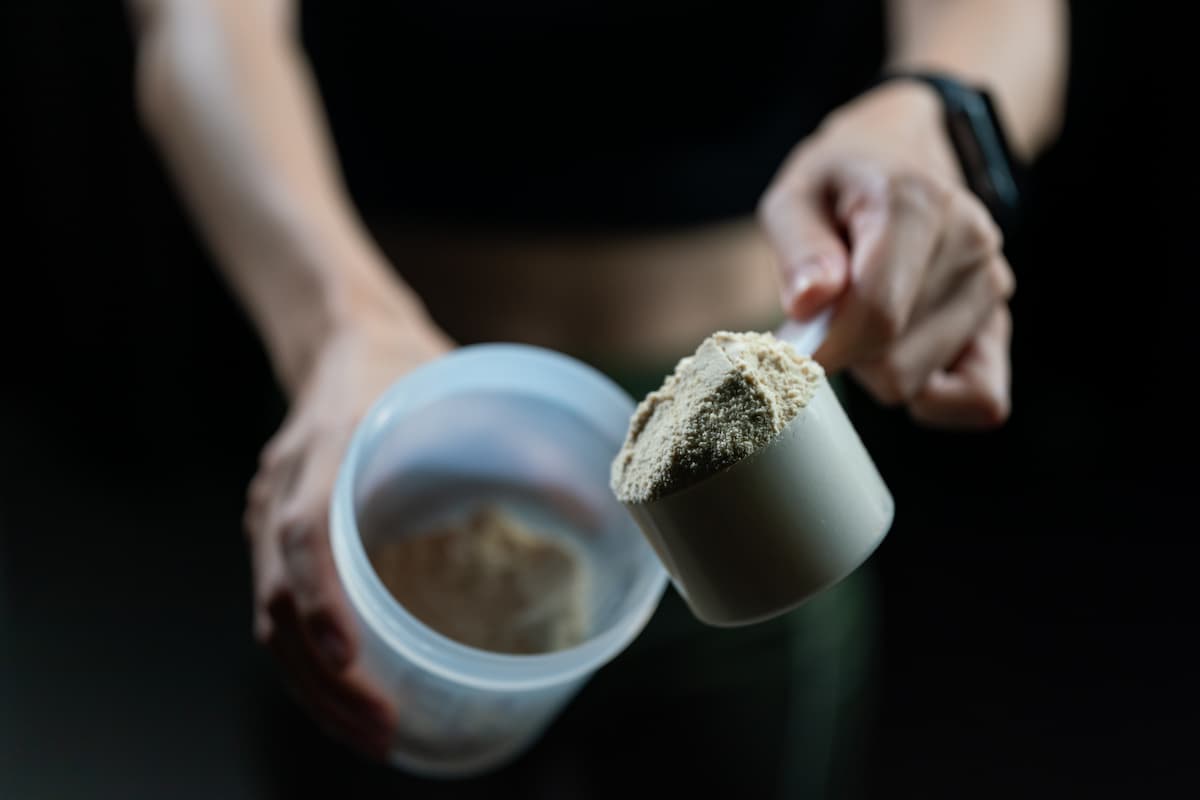
Why you can trust us
Articles on Natu.Care are written based on scientific research, data from government websites and other reliable sources. The texts are written in cooperation with doctors, nutritionists and other health and beauty experts. Articles are reviewed before publication and during significant updates.
.Learn more about our editorial process
.Information about advertisements
Content on Natu.Care may contain links to products from the sale of which we may receive a commission. When creating content, we adhere to high editorial standards and take care to be objective about the products discussed. The presence of affiliate links is not dictated by our partners, and we select the products we review ourselves completely independently.
.Learn more about our terms and Conditions
.Protein nutrition is a staple dietary supplement for many athletes. Some buy it even before they buy a gym pass. And after the first sip, they feel their muscles self grow (not grow, I'll explain later).
While it used to be crazy to have just two flavours to choose from, nowadays you can choose between numerous delicious flavours, even when you're not training. Protein conditioner is a tasty and easy-to-eat source of protein for everyone.
Under the guidance of nutritionist Kuba Pągowski, I have prepared the most important information about protein supplements. They will come in handy if you are tired of WPC, want to know what vegan miracles manufacturers offer, or are considering your first purchase.
From this article you will learn:
- What a protein supplement gives you. .
- What types of nutritional supplements there are and how they differ. .
- How to choose a protein supplement for yourself.
- How to choose a protein supplement for yourself.
- How much protein per day do you need to eat. .
- What are the myths about protein supplements.
- How to choose a protein supplement.
See also:
- Whey protein concentrate (WPC) .
- Whey protein isolate (WPI) .
- Whey protein hydrolysate (WPH)
- How much protein a day?
- Vegetable protein
- Casein
- Protein
- Creatine
- BCAA
- Citrulline
Protein in the diet - why is it so important?
.Protein is one of the three most important macronutrients in diet, along with carbohydrates and fats. Protein makes up 20% of your mass and is like the building blocks for skin, hair, bone and muscleand.
In addition, proteinsand:
.- promote tissue growth and repair, .
- are involved in the production of hormones and enzymes, .
- strengthen the immune system, .
- are a source of energy,
- are a source of energy.
- regulate metabolic processes (e.g. digestion), .
- transport components in the body (e.g. oxygen to cells), .
The average adult of normal body weight needs to consume approximately 1 g protein per kilogram of body weight. Physically active people need more, as much as 1.6-2.2 g per kilogram of body weightand.
Protein requirements can be high, and not everyone goes well into high-protein foods and certain foods can get overcooked. With help comes protein nutrients.
Protein nutrient - what is it?
.A protein supplement is a dietary supplement whose main ingredient is 100% complete protein. High-protein supplements are recommended for athletes, physically active people and anyone who needs to supplement their daily requirement of protein, which is essential for the functioning of the bodyand.
Many people - not just athletes - can benefit from using a protein supplement. Often our diets contain too little calcium or not enough protein per se. A portion of nutritional supplements per day can be part of a healthy dietary pattern even in people who do not train..
 .
.
Kuba Pągowski clinical dietitian
Most commonly, protein nutrition comes in the form of a powder that dissolves in a liquid (e.g. water, milk) or can be added to food (e.g. shakes, desserts, oatmeal, cakes). Protein conditioner in tablets is rare, and the popular liquid protein is simply pure egg white (without yolks).
ALLDEYNN WHEYROSE
Product description
Protein supplement containing whey protein concentrate (WPC) with added digestive enzymesós. It digests well, is an easy and quick way to provide protein and can be consumed by people with lactose intolerance. It will work well not only as a stand-alone drinkóy but also as a tasty addition to shakesóy, dessertsóy, oatmeal or omeletóy.
WHEYROSE contains five digestive enzymes that help break down macromolecules into smaller components, so that the ingredients from food and the nutrient are absorbed even better. This minimises or even eliminates digestive discomfort. Such an addition is rare in protein supplements.
.Pros and cons
Protein supplement containing whey protein concentrate (WPC) with added digestive enzymesós. It digests well, is an easy and quick way to provide protein and can be consumed by people with lactose intolerance. It will work well not only as a stand-alone drinkóy but also as a tasty addition to shakesóy, dessertsóy, oatmeal or omeletóy.
WHEYROSE contains five digestive enzymes that help break down macromolecules into smaller components, so that the ingredients from food and the nutrient are absorbed even better. This minimises or even eliminates digestive discomfort. Such an addition is rare in protein supplements.
.Additional information
Protein supplement containing whey protein concentrate (WPC) with added digestive enzymesós. It digests well, is an easy and quick way to provide protein and can be consumed by people with lactose intolerance. It will work well not only as a stand-alone drinkóy but also as a tasty addition to shakesóy, dessertsóy, oatmeal or omeletóy.
WHEYROSE contains five digestive enzymes that help break down macromolecules into smaller components, so that the ingredients from food and the nutrient are absorbed even better. This minimises or even eliminates digestive discomfort. Such an addition is rare in protein supplements.
.User review
Protein supplement containing whey protein concentrate (WPC) with added digestive enzymesós. It digests well, is an easy and quick way to provide protein and can be consumed by people with lactose intolerance. It will work well not only as a stand-alone drinkóy but also as a tasty addition to shakesóy, dessertsóy, oatmeal or omeletóy.
WHEYROSE contains five digestive enzymes that help break down macromolecules into smaller components, so that the ingredients from food and the nutrient are absorbed even better. This minimises or even eliminates digestive discomfort. Such an addition is rare in protein supplements.
.ALLDEYNN VEGEROSE
Product description
A protein supplement made from five plant proteins enriched with acacia fibre, flaxseed, MCT oil and the probiotic-prebiotic complex LactoWise®. It is a synbiotic thatós stimulates the developmentóy and growth of beneficial bacteria in the gastrointestinal tract and shows a beneficial effect on the condition of the digestive system.
Pros and cons
A protein supplement made from five plant proteins enriched with acacia fibre, flaxseed, MCT oil and the probiotic-prebiotic complex LactoWise®. It is a synbiotic thatós stimulates the developmentóy and growth of beneficial bacteria in the gastrointestinal tract and shows a beneficial effect on the condition of the digestive system.
Additional information
A protein supplement made from five plant proteins enriched with acacia fibre, flaxseed, MCT oil and the probiotic-prebiotic complex LactoWise®. It is a synbiotic thatós stimulates the developmentóy and growth of beneficial bacteria in the gastrointestinal tract and shows a beneficial effect on the condition of the digestive system.
Expert opinion
A protein supplement made from five plant proteins enriched with acacia fibre, flaxseed, MCT oil and the probiotic-prebiotic complex LactoWise®. It is a synbiotic thatós stimulates the developmentóy and growth of beneficial bacteria in the gastrointestinal tract and shows a beneficial effect on the condition of the digestive system.
ALLDEYNN VEGEROSE
Product description
A protein supplement made from five plant proteins enriched with acacia fibre, flaxseed, MCT oil and the probiotic-prebiotic complex LactoWise®. It is a synbiotic thatós stimulates the developmentóy and growth of beneficial bacteria in the gastrointestinal tract and shows a beneficial effect on the condition of the digestive system.
Pros and cons
A protein supplement made from five plant proteins enriched with acacia fibre, flaxseed, MCT oil and the probiotic-prebiotic complex LactoWise®. It is a synbiotic thatós stimulates the developmentóy and growth of beneficial bacteria in the gastrointestinal tract and shows a beneficial effect on the condition of the digestive system.
Additional information
A protein supplement made from five plant proteins enriched with acacia fibre, flaxseed, MCT oil and the probiotic-prebiotic complex LactoWise®. It is a synbiotic thatós stimulates the developmentóy and growth of beneficial bacteria in the gastrointestinal tract and shows a beneficial effect on the condition of the digestive system.
Expert opinion
A protein supplement made from five plant proteins enriched with acacia fibre, flaxseed, MCT oil and the probiotic-prebiotic complex LactoWise®. It is a synbiotic thatós stimulates the developmentóy and growth of beneficial bacteria in the gastrointestinal tract and shows a beneficial effect on the condition of the digestive system.
What does protein conditioner give you?
.Protein nutrition provides many benefits to people training and non-training alike, as it helps to replenish proteins that are valuable to the body's function (including 9 essential amino acids), supports the building, maintenance and recovery of muscle mass, metabolism and is a quick and tasty addition to mealsand.
.Whether you are training or not - you need to supply yourself with protein. Protein conditioner comes in handy in your cupboard not only after a workout, but also when you have no idea or time for a meal.
What does a protein supplement give you?"
.For those trainingand:
- Helps build and maintain muscle mass. Protein is a key ingredient needed to regenerate and repair damaged muscle tissue after intense training. .
- Accelerates post-workout recovery.Protein is needed to repair and rebuild muscle, helping you get back for another strong workout quickly.
- Provides essential amino acids. Most protein supplements provide essential amino acids (EAAs) that the body cannot produce on its own. .
- Improves training efficiency. Regular consumption of protein can contribute to increased strength and performance during strength training. .
- Helps to 'overeat' protein requirements. Sometimes this reaches over 200g in muscular men. Being overweight can be tough, so hitting your protein in liquid form doesn't weigh down your stomach or make you feel clogged.
For non-trainersand:
- Supplements protein in the diet. People who have difficulty getting the required amount of protein (e.g. 'non-eaters', vegetarians, vegans) can use protein supplements as a source of protein. .
- Promotes weight loss. Protein nutrients (especially casein and WPC) can increase satiety after consumption, preventing hunger attacks and snacking.
- Diversifies your menu. You now have dozens of flavours of protein supplements to choose from. You can use them in a cool way in meals such as oatmeal, cakes or desserts. .
Protein nutrient - for whom?
.Protein conditioner will be a useful dietary supplement for you if:
- you don't watch your protein intake in the diet very closely, or you don't eat products rich in protein, but you want to cover your daily requirements,
- you're training for strength and power.
- you are strength training and want to build muscle mass, .
- you are keen to maintain muscle mass, .
- you are a physically active person, .
- you want to add variety to your menu with a quick-to-prepare and valuable ingredient, .
Types of protein supplements
.Whey protein
.This mixture of proteins that are isolated from the liquid part of milk - whey - during cheese production. Whey proteins make up about 20% of the protein content of milk, with casein making up the remaining 80%. Their total content in all milk is about 0.7%and.
There are three types of whey protein: concentrate, isolate and hydrolysate.
.Whey protein concentrate (WPC)
.WPC ( Whey Protein Concentrate) is whey protein concentrate. It contains 30-85% protein in 100g dry weight. WPC protein supplements supplement dietary protein by providing, among other things, all the essential amino acids (EAA) that you need to obtain from foodand.
.WPC is a good choice if you are wondering what protein to buy to start with. It's cheap, has plenty of flavours to choose from and features the least 'protein' aftertaste among nutritional supplements.
For 99% of the population, WPC will be the best protein nutrient option - cheap, tasty, wholesome. Often there is no need to overpay for more expensive types of protein..
 .
.
Kuba Pągowski clinical dietitian
Whey protein isolate (WPI)
.WPI ( Whey Protein Isolate) is a form of whey protein obtained by microfiltration. It contains 90-95% concentrated protein, 0-3% carbohydrates, 1-3% fats per 100 g dry weight. Isolate is rapidly absorbed and has a short absorption period of 30-60 minutesand.
Isolates are often chosen by people with lactose intolerance and higher protein requirements, as the 'protein in protein' content is higher than in WPC, allowing more protein to be delivered at a lower calorific cost. Plus, WPI is absorbed slightly faster, which is important for athletes, they simply have enough to overeat daily that they need to reach for products that will leave the stomach quickly, making room for the next portion of food.
Whey protein hydrolysate (WPH)
.WPH (pronounced Whey Protein Hydrolysate) is whey protein hydrolysate. It is the purest and most concentrated form of whey protein. It contains 90-100% protein in 100 g dry weight. WPH is absorbed very quickly and provides complete protein - including amino acids that need to be obtained from food. It dissolves well and digests quicklyand.
Hydrolysate is the purest form of protein, often chosen by professional bodybuilders due to its high protein content and very fast absorption time.
WPC vs WPI vs WPH
.If you are considering buying a whey protein, the comparison table below can help you choose. Find out what will satisfy your taste buds, what your stomach needs and what your...wallet has to say about it all.
.|
Taste . |
Protein concentrate (WPC) . |
Protein isolate (WPI) . |
Whey protein hydrolysate (WPH) . |
||
|
Protein content per 100 g dry weight |
30-85% |
90-95% |
90-100% |
||
|
Ease of digestion |
Good |
Very good |
Very good |
||
|
Digestion time |
2-4 hours |
30-60 minutes |
15-30 minutes |
||
|
Price |
The cheaper choice (approx. £4.80-6.50 100 g) |
More expensive choice (approx. £14/100 g) | More expensive choice (approx. £14/100 g) |
||
|
Solubility . |
Average |
High |
High |
||
| High Content of carbohydrates and fats per 100 g dry weight |
3-8% carbohydrates, 2-6% fats, more lactose |
0-3% carbohydrates, 1-3% fats, less lactose |
0-2% carbohydrate, 1-2% fat, minimal lactose | 0-2% carbohydrate, 1-2% fat, minimal lactose |
|
|
Flavour |
Anecdotally - best rated flavour, a matter of taste |
Slightly worse aftertaste than WPC - a matter of taste |
Least tasty | Less tasty |
|
|
For whom . |
Beginners, advanced, no stomach problems, like to make recipes using WPC (blends well with foods) | Beginners, advanced, no stomach problems, like to make recipes using WPC (blends well with foods) | Beginners. |
Beginners, advanced, people with lactose intolerance, people who want to quickly provide their body with protein after training |
People with lactose intolerance, sensitive stomach, on a low carbohydrate or ketogenic diet. A frequent choice among professional bodybuilders. |
Vegetable protein
.Vegan supplements are a great alternative for those on a plant-based diet or with a dairy protein intolerance. They provide protein from plants - mainly peas and soya. Read below what the average plant-based nutrient contains and whether it's the right choice for you.
.Important amino acids.
|
Features . |
Vegetable protein . |
|
|
Protein content per 100 g dry weight |
50-80% |
|
|
Importance of essential amino acids |
Most plant-based protein supplements have a complete aminogram. Read the composition before you buy - there should be 9 amino acids. | |
|
Biological value . |
Plant protein is less efficiently absorbed by the body compared to whey protein. |
|
|
Absorbability |
80-90% |
|
|
Fibre content |
Naturally rich in fibre, which has positive effects on, among other things, digestion and intestinal health. | Naturally rich in fibre, which has positive effects on, among other things, digestion and intestinal health. |
|
Percentage of fats and carbohydrates per 100 g of powder |
Carbohydrates 5-20%, fats 2-15% |
|
|
Potential allergens . |
Nuts, soya . |
|
|
Satiety |
Powder + liquid provides good satiety after consumption, but it is best when the powder is used in recipes such as omelette, oatmeal or eaten with sources of fat and carbohydrates. |
|
|
Flavour |
Good feedback. Large selection of flavours, nice texture when mixed with liquid, works well "together" in recipes.
| Good reviews. |
|
Most common sources of protein . |
Pea protein isolate, soy protein isolate |
Vegetable protein supplements contain slightly less protein per 100 g than whey protein, but often contain interesting additives, such as prebiotics or fibre.
Micellar casein
.Maybe you've already chosen your nutrient of choice in your heart (or muscle), I'll still suggest micellar casein for you to consider. This is the purest form that casein protein comes in. It contains 80-82% protein per 100g dry weight. Micellar casein is obtained by skimming and purifying milk of impurities and lactoseand.
Protein supplements Micellar Casein are a common choice among those in training. Athletes appreciate it for:
- a wealth of nutrients - calcium, phosphorus and essential amino acids, .
- slower release rate of amino acids, .
- long digestion time and high degree of satiety, .
- delicious taste and texture after cooking, .
Micellar casein is known as the 'bedtime protein' because, when consumed before bed, it satiates and can prevent bouts of night-time hunger. It's a great choice if you're wondering which protein for reduction to choose.
So... whey protein or plant protein?
.Choose whey protein if:
- you want to save money (WPC protein is the cheapest option), .
- you want to blindly buy a supplement with complete protein, .
- you are keen to build and maintain muscle mass, .
- you want to increase your dietary protein intake in a simple and reasonably inexpensive way, .
Choose plant-based protein if:
- you are on a vegan diet, .
- you have an allergy to milk proteins, .
- you are lactose intolerant, .
- you are looking for variety in your diet and want to reduce protein from meat, .
- you like to experiment in the kitchen - vegan supplements work well cooperate when cooking, .
- you are looking for eco-friendly alternatives - plant protein production is usually less harmful to the environment.
Not so sweet
Be aware of the sweetener used in the protein supplement, over-sweetened additives (e.g. pieces of biscuit, chocolate) and the overall sugar content of a daily serving. Ideally, the nutrient contains steviol glycosides from stevia or xylitol.
.At this point, the worst sweetener is sucralose. If you can limit its consumption and choose a nutrient without this sweetener, then do so. However, if you don't consume X measures of nutrients every day - there is nothing to be afraid of..
 .
.
Kuba Pągowski clinical dietitian
What protein to choose
.Choose a protein that is palatable, wholesome, non-irritating to your stomach and not on a budget. Pay attention to the type of sweetener used and the sugar content. Supplementation is meant to be a pleasure, not a bland chore.
.Daily protein requirements
.Remember that daily protein requirements are a very individual matter. The most important thing is to not go below the minimum recommended amountand.
.|
Who? . |
How much protein per kg of body weight? | Who? |
|
| . |
Adult person of normal body weight | . |
1 g |
|
Adults with active lifestyles or who participate in strength sports |
1.8-2.2 g |
||
|
Adults with an active lifestyle or engaged in performance sports | |||
| . |
1.6-1.8 |
||
|
Girls and boys 10-18 years . |
ox. 1 g |
||
|
Pregnant women |
I trimester approx. 1.1 g, 2nd trimester 1.2 g, 3rd trimester 1.2 g |
||
|
Breastfeeding women . |
1.4 g |
||
|
Persons over 65 years of age |
1 g and in the case of malnutrition or chronic diseases 1.2-1.5 g . |
The recommended minimum amount of protein, or 1 g/kg body weight, is the amount a person needs to avoid deficiency. It does not specify the amount needed to improve body composition.
Protein requirements depend mainly on the level of physical activity, the type of sport practised and the goal (muscle building, reduction). For example, if you are looking to build muscle mass, too little protein may prevent thisand.
How to calculate your protein requirements
.The basic formula is:
.body weight x recommended amount of protein per kg body weight (see table)
.Examples:
- A woman with a body weight of 63 kg, training at the gym 2 x per week, who wants to lose weight healthily and safely, should eat approximately 119 g of protein (63 × 1.9).
- A male with a body weight of 86 kg, training at the gym 3 x per week, who wants to build muscle mass, should consume approximately 172 g of protein (86 × 2).
- A woman weighing 75 kg, running 2 x per week, should consume approximately 127 g of protein (75 × 1.7).
For freaks
.Some people also calculate their protein requirements by taking into account the amount of body fat. However, this is an inaccurate calculation as it is impossible to know exactly what % body fat you have. Even a DEXA scan can be wrong by 5%and.
Be aware that basic calculations will not always work. I have a colleague who, at weight, was unable to 'overeat' the calculated 2.2g of protein per kg of body weight. Ultimately, he built quality musculature on 1.8 g. Tailor your protein intake to your needs, but also your capabilities.
Protein in foods
.Maybe you haven't paid attention to the protein content of your diet so far and are wondering how much protein nutrition you need. Check out the list of protein-rich foods and whether you have them in your menu - it will make your decision easier.
Products with high protein content
. .|
Product . |
Protein content per 100 g |
|
Soy |
36 g |
|
Chicken breast |
27 g |
|
Beef |
26 g |
|
Pork tenderloin |
26 g |
|
Herring |
23 g |
|
Smoked mackerel |
21 g |
|
Salmon |
20 g |
|
Atlantic sea bream |
17.8 g |
|
Rural quark |
16 g |
|
Whole grain pasta |
15 g |
|
Manna groats |
13 g |
|
Egg |
12 g |
|
Natural skyr |
12 g |
|
Country cheese |
11 g |
|
Chickpeas |
9 g |
|
Lentils |
9 g |
|
Rye bread |
9 g |
|
Red beans |
8.7 g |
More is not better
Huge amounts of protein (more than 2.2 g/kg body weight) in most people will not produce additional effects, such as bigger muscles. It is better to allocate these kcal to carbohydrates in order to have strength for training.
If you are in doubt about how much protein you need to consume to avoid becoming deficient and achieving your goals, consult a nutritionist or personal trainer.
How to use protein supplementation?
.Protein nutrition is recommended to be taken 1 to 3 times a day (on average there is approximately 20g of protein per serving). The amount may vary depending on the manufacturer's recommendations on the packaging. Protein conditioner can be used on an ad hoc or daily basis, however, it is best if you obtain your protein mainly from food.
Daily protein supply is best spread over 3-4 meals, with 20-40g of protein in each. It's important to keep your body supplied with protein throughout the day.
It's also important to keep your body supplied with protein throughout the day.
How much protein nutrition per day?
.Read the labels - some recommend, for example, one scoop per day, while others recommend three (it depends on the composition and protein content of the serving). Don't exceed the manufacturer's recommended daily serving as this can cause stomach problems such as nausea or abdominal pain. Match the portion to your requirements and overall protein supply.
Protein before or after training?
.Scientific research suggests that it doesn't matter whether you drink protein before or after your workout, as the most important thing is your overall protein supply throughout the day, which for strength trainers is a minimum of 1.8 grams per 1 kg of body weightand.
It has been established that consuming a serving of protein during the so-called anabolic window is best for muscle growth and recovery. This statement can be put between fitness fairy tales.
The anabolic window is not a golden period for protein consumption, as scientists have long since proven that protein synthesis takes place even hours after trainingand.
.What to eat protein nutrition with?
.Protein nutrition can be used classically, by mixing the powder with a liquid such as water or milk, as well as by adding it to food. The most important thing is to dissolve the powder well and prevent lumps from forming - then consumption is much more pleasant.
Protein nutrient can be added to:
.- oatmeal, quinoa, porridge, .
- shakes, .
- cake (e.g. pancake, waffle), .
- masses for homemade bars, power balls, cakes, .
- sweet sauces, .
I do not recommend protein nutrition as a single meal, especially when reducing.
Tip: The best way is classic (supposedly already engraved on the walls of the Colosseum), i.e.:
protein supplement + banana + peanut butter.
.Contraindications
.Protein nutrient contraindications include allergy or intolerance to any component of the supplement, pregnancy and lactation, kidney disease and skin problems such as acne (protein nutrient may exacerbate the condition)and.
.Protein for...grandma?
.Elderly people are at risk of sarcopenia .
Sarcopenia is a condition associated with loss of muscle mass and strength. It is a natural process that occurs after about 50 years of age. Sarcopenia can lead to muscle weakness, difficulty in performing daily activities, and increase the risk of falls and bone fractures..
 .
.
Witold Tomaszewskidoctor of medical sciences
.Elderly people need to take care of a nutritious and varied diet, but giving them protein supplements or even high-protein products like Nutridrink without consulting a doctor can be harmful to them. And importantly, protein is only a drop in the ocean of micronutrient and macronutrient needs in seniors.
Eating large amounts of whey protein by seniors can impede proper kidney function by increasing plasma urea content, urinary calcium excretion and urine volume. This overloads the urinary system and can lead to the formation of kidney stones..
 .
.
Witold Tomaszewskidoctor of medical sciences
.Don't give your grandmother a protein supplement. Think about that strength when you refuse to give her an exact...
.And seriously - your grandmother should opt for classic sources of protein, such as cheesecake (even with sultanas) or pasta with cottage cheese. And strawberries - keep the carbs in mind!
Side effects of protein supplements
.Side effects of protein supplements are most commonly: bloating, abdominal pain, nausea, vomiting, diarrhoea and gas. People who are lactose intolerant or abuse protein supplements are particularly prone to these unpleasant discomfortsand.
.Myths about protein nutrition
.Some of the misinformation about protein nutrients causes anxiety in mums finding suspicious Whey Protein in their sons' room, and makes me smile. Especially the one about muscle growth. You know, from just drinking it.
Read about some of the myths and what it's really like (and show your mum the chart, for peace of mind).
.Muscle mass does not happen.
It's just that.
Vegan protein is a source of fibre and valuable phytonutrients.
They do not contain illegal substances.
|
Mit |
How is it really . |
|
| . |
Drinking protein nutrition increases muscle mass. |
Unfortunately, no. If it did, pavements would be wider and clothing sizes would be different. Muscle mass occurs after sufficiently hard strength training, not from protein intake alone. |
|
Protein supplements have less than 30g of protein per serving, because you won't assimilate more. | ||
| . |
This makes no evolutionary sense. The body will use any amount of protein you eat. Simply above 40g it doesn't have much effect. | |
|
Vegan protein supplements lower testosterone. | ||
| . |
This is not supported by scientific research. Plant protein is a source of fibre and valuable phytonutrients. | |
|
Drinking too much protein supplements damages the kidneys. |
Healthy individuals need not fear kidney damage if they supplement the amount recommended by the manufacturer and according to their own needs. |
|
|
Protein supplements contain "doping". |
Someone's concerned mum was probably throwing these steroids out the window, but all protein supplements approved for sale in Poland do not contain illegal substances. | |
|
Vegetable protein supplements are inferior to whey protein because they are incomplete. | ||
| . |
Plant protein supplements (e.g. soya or pea) increasingly contain all the essential amino acids, so they will effectively supplement them in the diet. |
See also:
- Ashwagandha
- Omega-3 fatty acids
- Collagen for athletes
- Collagen for runners
- Berberine for weight loss, will it work? .
- Caffeine
Summary
.- Protein supplements are dietary supplements that provide wholesome protein.
- Protein supplements are a dietary supplement.
- They are recommended for people who have an increased need for protein in their diet or who have problems supplementing it in their diet.
- Protein supplements are also recommended for people who have an increased need for protein in their diet or who have problems supplementing it in their diet.
- For strength training, providing yourself with protein helps build, maintain and regenerate muscle mass. .
- There is a choice of protein supplements from whey protein (concentrates, isolates and hydrolysates), micellar casein and plant proteins (from soya, peas).
- The minimum amount of dietary protein in an adult is 1 g/kg body weight, and in active people 1.8-2.2 g/kg body weight (strength training), 1.6-1.8 g/kg body weight (performance training). .
- Protein supplements should not be used by people with an allergy or intolerance to any component of the supplement, pregnant and lactating women, people with kidney disease and skin problems. .
- Side effects of protein supplements are most commonly: bloating, abdominal pain, nausea, vomiting, diarrhoea and gas. .
FAQ
.How much protein for weight gain?
.In order to build muscle mass and maximise protein synthesis, it is recommended to consume 1.8-2.2 g of protein per kg of body weight at mass. Consuming protein above these recommendations does not yield greater results in terms of 'cleaner' lean mass or larger muscles.
In order to build musculature, proper training to stimulate muscle fibres is key - without this, they will not grow and protein alone without exercise will not build them up in any way.
How much protein on reduction?
.On reduction, you should consume between 1.8 and 2 g of protein per kg of body weight, or about 20-25% of the energy value of your daily requirements. This amount prevents the loss of muscle mass and ensures satiety, which is very important on a reduction - it helps you stick to your dietary goals.
What kind of protein for weight loss?
.The best protein for weight loss is micellar casein (micellar casein) because it provides a complete protein, including all nine essential amino acids. Micellar casein is a protein that takes a long time to digest, so it provides satiety for hours after consumption. This prevents hunger attacks and snacking.
.Can a protein supplement replace a meal?
.Protein nutrition can replace a meal, but ideally it should be added to it - then it will be more filling and take longer to digest. Micellar casein or whey protein concentrate (WPC) are best as a stand-alone meal. They take longer to absorb and digest than, for example, protein hydrolysate.
.A serving of protein nutrient with liquid as a meal is not recommended during a reduction, as at this stage you should be concerned about satiety and long digestion time. Drinking the nutrient alone (especially whey protein isolate or hydrolysate) works great for weight gain - it's not clogging and is absorbed quickly.
What is better creatine or protein?
.It is impossible to pinpoint which is better. Both creatine and protein promote muscle mass gain, but they differ in the way they work. Creatine increases strength and muscle mass by increasing exercise capacity, while a protein nutrient stimulates increased muscle protein synthesis. In order to build quality muscle mass and improve strength performance, you can use creatine and protein nutrient at the same time.
Is it okay to take protein at the age of 13?
.Protein supplements are not recommended for adolescents, as they should provide their bodies with protein primarily from protein-rich foods (e.g. meat, dairy) during the growth period. The use of protein supplements at the age of 13 should be consulted with a doctor and nutritionist.
Gainer or protein - which is better?
.Gainer will be better if you are struggling to provide your body with enough kcal and want to gain weight. Protein will be a better choice if you are looking for an adequate protein supply and your diet lacks protein.
What does protein powder give you?
.Protein powder (protein nutrition) supplements the protein in your diet when you are unable to provide it from food. It is a complete protein that provides valuable amino acids. Protein powder is quick to prepare (with water, milk, vegetable drink), but can also be added to foods, e.g. oatmeal, cakes.
What is the best protein supplement for women?
.There is no such thing as the best dedicated protein conditioner for women. Any protein nutrient will do. The marketing of these supplements aimed at women often emphasises that the product is, for example, a protein for weight loss for girls or the product is packaged in a feminine design. However, every protein supplement has the same task: to supplement proteins in the diet.
Does protein nutrition without exercise make sense?
Yes, using a protein supplement without exercise, a training plan or even with low activity during the day is a good way to supplement protein in your diet, especially if you have trouble getting it from food. However, remember to ensure a varied menu above all.
How much does a protein supplement cost?
.Protein nutrition costs between around £4.80 and £14 per 100g of powder, depending on the type of protein. Whey protein concentrate is the cheapest choice, while whey protein hydrolysates are the most expensive.
Sources
.See all
.A Castro, L. H., S de Araújo, F. H., M Olimpio, M. Y., B de B Primo, R., T Pereira, T., F Lopes, L. A., B S de M Trindade, E., Fernandes, R., & A Oesterreich, S. (2019). Comparative Meta-Analysis of the Effect of Concentrated, Hydrolyzed, and Isolated Whey Protein Supplementation on Body Composition of Physical Activity Practitioners. Nutrients, 11(9), 2047. https://doi.org/10.3390/nu11092047
Arent, S. M., Cintineo, H. P., McFadden, B. A., Chandler, A. J., & Arent, M. A. (2020). Nutrient Timing: A Garage Door of Opportunity? Nutrients, 12(7), 1948. https://doi.org/10.3390/nu12071948
Cengiz, F. P., Cevirgen Cemil, B., Emiroglu, N., Gulsel Bahali, A., & Onsun, N. (2017). Acne located on the trunk, whey protein supplementation: Is there any association? Health Promotion Perspectives, 7(2), 106-108. https://doi.org/10.15171/hpp.2017.19
Cribb, P. J., Williams, A. D., Carey, M. F., & Hayes, A. (2006). The effect of whey isolate and resistance training on strength, body composition, and plasma glutamine. International Journal of Sport Nutrition and Exercise Metabolism, 16(5), 494-509. https://doi.org/10.1123/ijsnem.16.5.494
Dimski, D. S. (1994). Ammonia metabolism and the urea cycle: Function and clinical implications. Journal of Veterinary Internal Medicine, 8(2), 73-78. https://doi.org/10.1111/j.1939-1676.1994.tb03201.x
Fan, Y., Wang, M., Li, Z., Jiang, H., Shi, J., Shi, X., Liu, S., Zhao, J., Kong, L., Zhang, W., & Ma, L. (2022). Intake of Soy, Soy Isoflavones and Soy Protein and Risk of Cancer Incidence and Mortality. Frontiers in Nutrition, 9, 847421. https://doi.org/10.3389/fnut.2022.847421
Finn, C. (2018, February 2). Body Composition by DEXA: Are DEXA Scans Accurate? Muscle Evo. https://muscleevo.net/dexa-scan-accurate/
Gee, T. I., Woolrich, T. J., & Smith, M. F. (2019). Effectiveness of Whey Protein Hydrolysate and Milk-Based Formulated Drinks on Recovery of Strength and Power Following Acute Resistance Exercise. Journal of Human Kinetics, 68, 193-202. https://doi.org/10.2478/hukin-2019-0066
Gorissen, S. H. M., & Witard, O. C. (2018). Characterising the muscle anabolic potential of dairy, meat and plant-based protein sources in older adults. The Proceedings of the Nutrition Society, 77(1), 20-31. https://doi.org/10.1017/S002966511700194X
Hoffman, J. R., & Falvo, M. J. (2004). Protein - Which is Best? Journal of Sports Science & Medicine, 3(3), 118-130.
Jäger, R., Kerksick, C. M., Campbell, B. I., Cribb, P. J., Wells, S. D., Skwiat, T. M., Purpura, M., Ziegenfuss, T. N., Ferrando, A. A., Arent, S. M., Smith-Ryan, A. E., Stout, J. R., Arciero, P. J., Ormsbee, M. J., Taylor, L. W., Wilborn, C. D., Kalman, D. S., Kreider, R. B., Willoughby, D. S., ... Antonio, J. (2017). International Society of Sports Nutrition Position Stand: Protein and exercise. Journal of the International Society of Sports Nutrition, 14(1), 20. https://doi.org/10.1186/s12970-017-0177-8
Jarosz, Prof Dr n med M. (2020, December 3). Nutrition standards 2020. National Centre for Nutrition Education. https://ncez.pzh.gov.pl/abc-zywienia/normy-zywienia-2020/
Jeewanthi, R. K. C., Lee, N.-K., & Paik, H.-D. (2015). Improved Functional Characteristics of Whey Protein Hydrolysates in Food Industry. Korean Journal for Food Science of Animal Resources, 35(3), 350-359. https://doi.org/10.5851/kosfa.2015.35.3.350
Kim, C.-B., Park, J.-H., Park, H.-S., Kim, H.-J., & Park, J.-J. (2023). Effects of Whey Protein Supplement on 4-Week Resistance Exercise-Induced Improvements in Muscle Mass and Isokinetic Muscular Function under Dietary Control. Nutrients, 15(4), 1003. https://doi.org/10.3390/nu15041003
Krieger, J. W., Sitren, H. S., Daniels, M. J., & Langkamp-Henken, B. (2006). Effects of variation in protein and carbohydrate intake on body mass and composition during energy restriction: A meta-regression 1. The American Journal of Clinical Nutrition, 83(2), 260-274. https://doi.org/10.1093/ajcn/83.2.260
Layman, D. K., Lönnerdal, B., & Fernstrom, J. D. (2018). Applications for α-lactalbumin in human nutrition. Nutrition Reviews, 76(6), 444-460. https://doi.org/10.1093/nutrit/nuy004
Lonnie, M., Hooker, E., Brunstrom, J. M., Corfe, B. M., Green, M. A., Watson, A. W., Williams, E. A., Stevenson, E. J., Penson, S., & Johnstone, A. M. (2018). Protein for Life: Review of Optimal Protein Intake, Sustainable Dietary Sources and the Effect on Appetite in Ageing Adults. Nutrients, 10(3), 360. https://doi.org/10.3390/nu10030360
Mertz, K. H., Reitelseder, S., Bechshoeft, R., Bulow, J., Højfeldt, G., Jensen, M., Schacht, S. R., Lind, M. V., Rasmussen, M. A., Mikkelsen, U. R., Tetens, I., Engelsen, S. B., Nielsen, D. S., Jespersen, A. P., & Holm, L. (2021). The effect of daily protein supplementation, with or without resistance training for 1 year, on muscle size, strength, and function in healthy older adults: A randomized controlled trial. The American Journal of Clinical Nutrition, 113(4), 790-800. https://doi.org/10.1093/ajcn/nqaa372
Naclerio, F., & Larumbe-Zabala, E. (2016). Effects of Whey Protein Alone or as Part of a Multi-ingredient Formulation on Strength, Fat-Free Mass, or Lean Body Mass in Resistance-Trained Individuals: A Meta-analysis. Sports Medicine (Auckland, N.Z.), 46(1), 125–137. https://doi.org/10.1007/s40279-015-0403-y
Nguyen, D. L., & Morgan, T. (2014). Protein restriction in hepatic encephalopathy is appropriate for selected patients: A point of view. Hepatology international, 8(2), 447-451. https://doi.org/10.1007/s12072-013-9497-1
Noakes, M., Keogh, J. B., Foster, P. R., & Clifton, P. M. (2005). Effect of an energy-restricted, high-protein, low-fat diet relative to a conventional high-carbohydrate, low-fat diet on weight loss, body composition, nutritional status, and markers of cardiovascular health in obese women. The American Journal of Clinical Nutrition, 81(6), 1298-1306. https://doi.org/10.1093/ajcn/81.6.1298
Pal, S., Ellis, V., & Dhaliwal, S. (2010). Effects of whey protein isolate on body composition, lipids, insulin and glucose in overweight and obese individuals. The British Journal of Nutrition, 104(5), 716-723. https://doi.org/10.1017/S0007114510000991
Pinckaers, P. J. M., Kouw, I. W. K., Gorissen, S. H. M., Houben, L. H. P., Senden, J. M., Wodzig, W. K. H. W., de Groot, L. C. P. G. M., Verdijk, L. B., Snijders, T., & van Loon, L. J. C. (2023). The Muscle Protein Synthetic Response to the Ingestion of a Plant-Derived Protein Blend Does Not Differ from an Equivalent Amount of Milk Protein in Healthy Young Males. The Journal of Nutrition, 152(12), 2734-2743. https://doi.org/10.1093/jn/nxac222
Shawcross, D. L., & Wendon, J. A. (2012). The neurological manifestations of acute liver failure. Neurochemistry International, 60(7), 662-671. https://doi.org/10.1016/j.neuint.2011.10.006
Shepherd, J., Ng, B., Sommer, M., & Heymsfield, S. B. (2017). Body Composition by DXA. Bone, 104, 101-105. https://doi.org/10.1016/j.bone.2017.06.010
Silverberg, N. B. (2012). Whey protein precipitating moderate to severe acne flares in 5 teenaged athletes. Cutis, 90(2), 70-72.
Simonart, T. (2012). Acne and whey protein supplementation among bodybuilders. Dermatology (Basel, Switzerland), 225(3), 256-258. https://doi.org/10.1159/000345102
Veldhorst, M. A. B., Nieuwenhuizen, A. G., Hochstenbach-Waelen, A., van Vught, A. J. A. H., Westerterp, K. R., Engelen, M. P. K. J., Brummer, R.-J. M., Deutz, N. E. P., & Westerterp-Plantenga, M. S. (2009). Dose-dependent satiating effect of whey relative to casein or soy. Physiology & Behavior, 96(4-5), 675-682. https://doi.org/10.1016/j.physbeh.2009.01.004
Vasconcelos, Q. D. J. S., Bachur, T. P. R., & Aragão, G. F. (2021). Whey protein supplementation and its potentially adverse effects on health: A systematic review. Applied Physiology, Nutrition, and Metabolism = Physiologie Appliquee, Nutrition Et Metabolisme, 46(1), 27-33. https://doi.org/10.1139/apnm-2020-0370
West, D. W. D., Abou Sawan, S., Mazzulla, M., Williamson, E., & Moore, D. R. (2017). Whey Protein Supplementation Enhances Whole Body Protein Metabolism and Performance Recovery after Resistance Exercise: A Double-Blind Crossover Study. Nutrients, 9(7), 735. https://doi.org/10.3390/nu9070735
Wu, G. (2016). Dietary protein intake and human health. Food & Function, 7(3), 1251-1265. https://doi.org/10.1039/C5FO01530H
Editorials
Meet the team


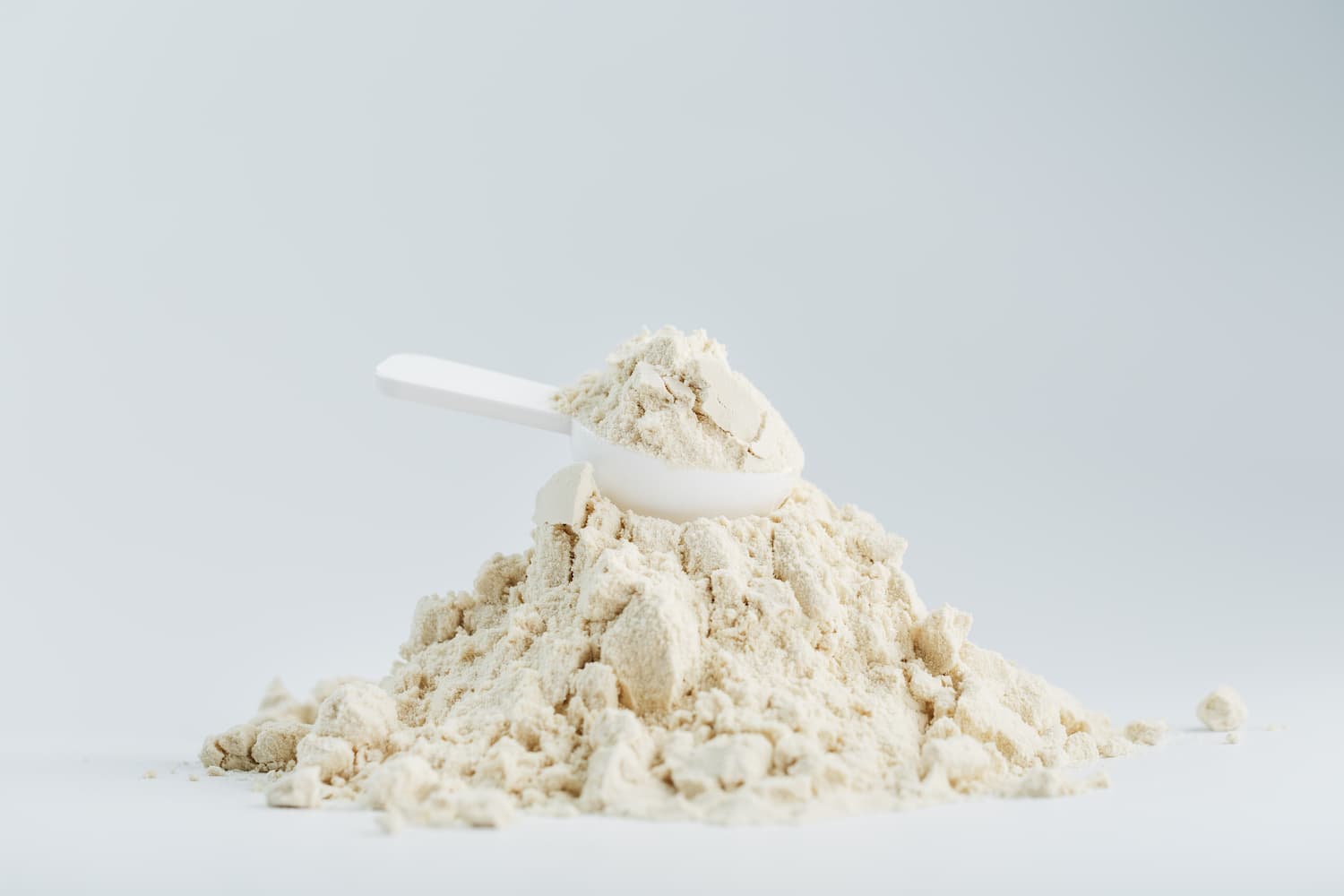
Vegan protein supplements add protein to the diets of athletes and non-athletes alike.

Look after the protein in your diet whether you are on a weight gain, weight reduction or weight maintenance.

Methionine is a little-known amino acid that is responsible for many functions in the body.
